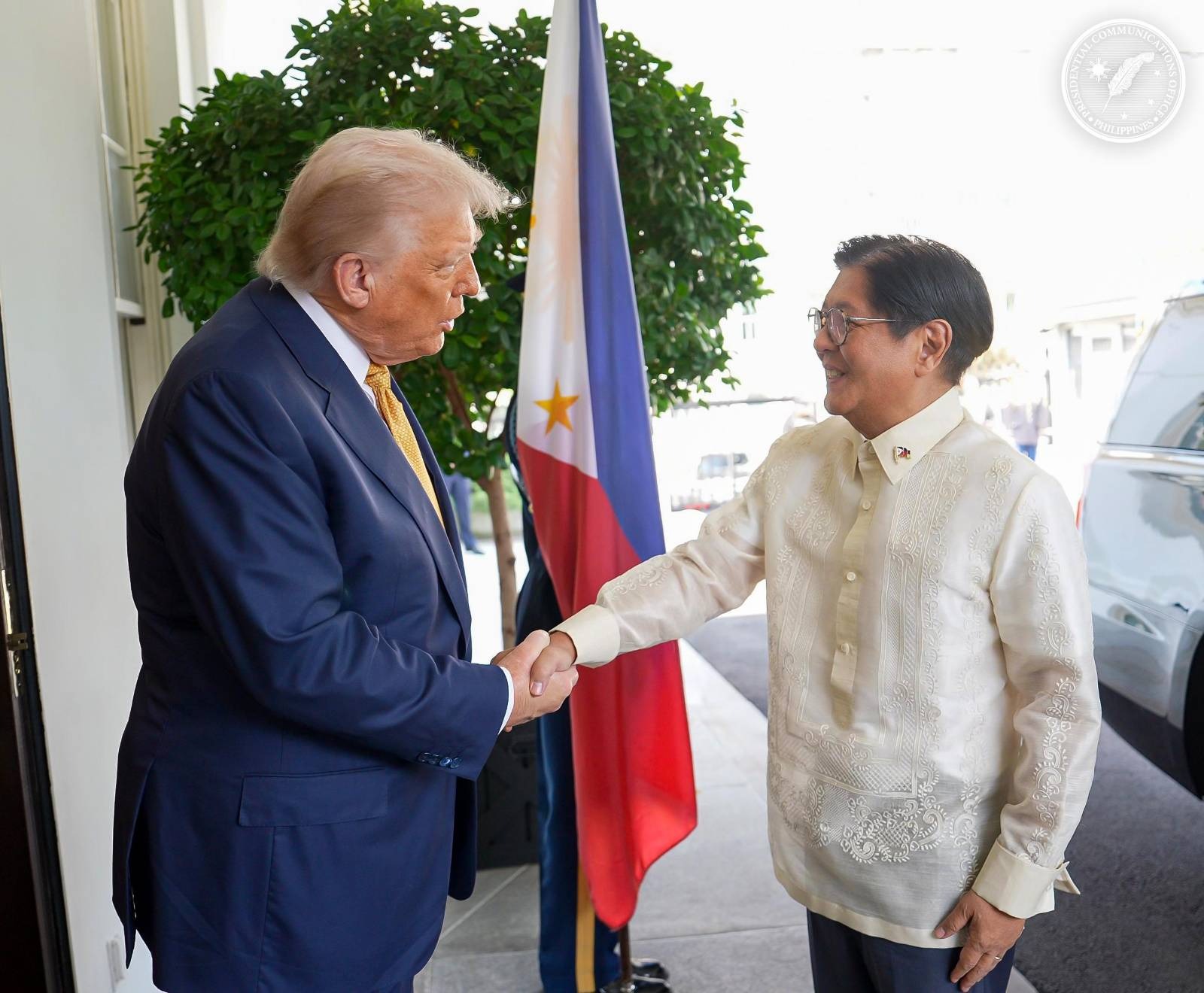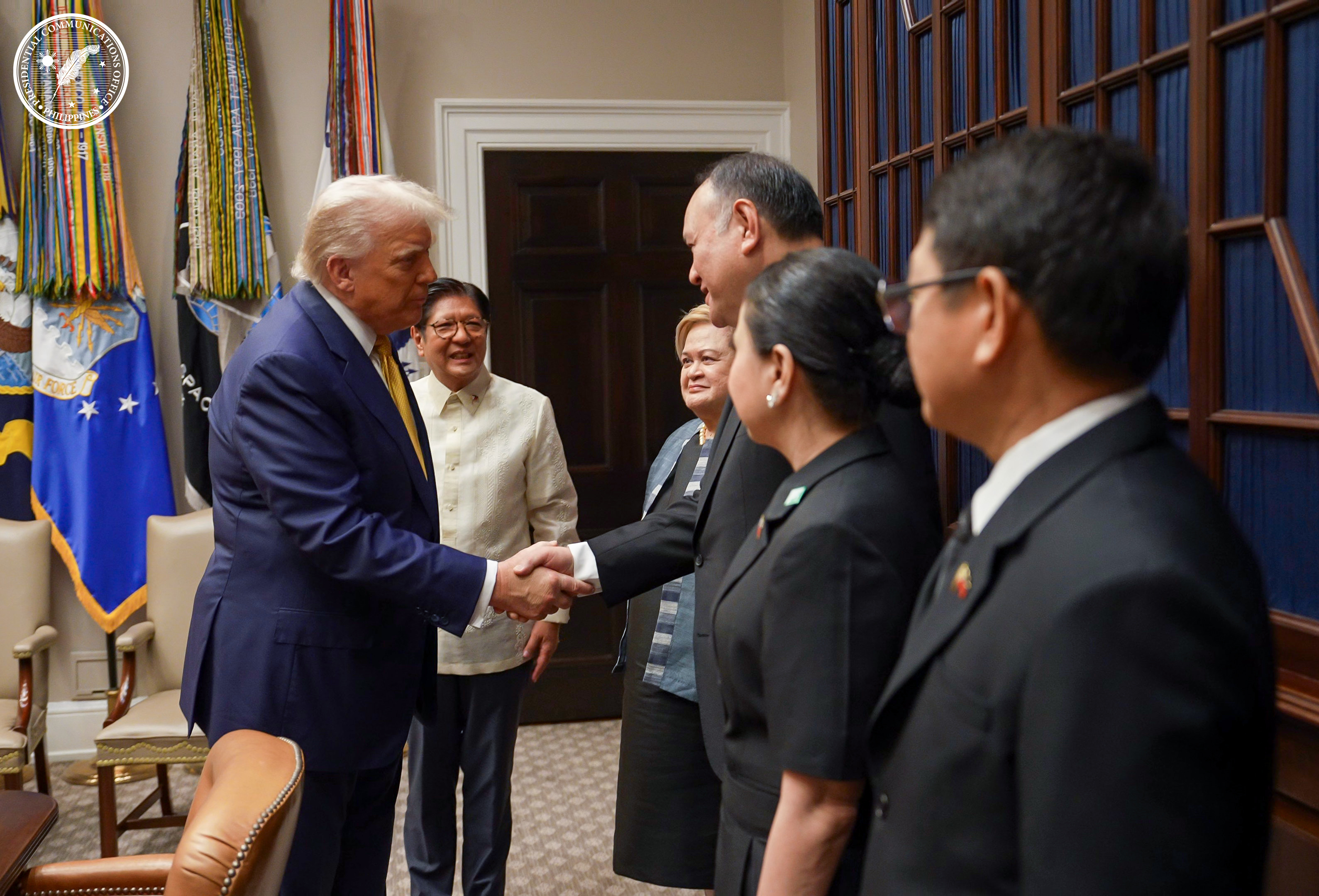
By Brian Campued
President Ferdinand R. Marcos Jr. called the reduction of the United States-proposed tariff on Philippine exports a “significant achievement” following negotiations with U.S. President Donald Trump at the White House.
In a media interview at the Blair House in Washington, DC before heading back to Manila, Marcos announced that the new trade agreement between the Philippines and the U.S. has been reduced to 19% from the proposed 20%.
“Now, one percent might seem like a very small concession. However, when you put it in real terms, it is a significant achievement,” he noted.
The President also confirmed that the Philippines will have an open market and that the U.S. will not pay tariffs on certain imports, including automobiles.
He added that under the trade deal, the Philippines will also increase its imports of soy products, wheat, and pharmaceuticals from the U.S.
“There’s still a lot of detail that needs to be worked out on the different products and the different exports and imports,” Marcos said.
The revised tariff agreement placed the Philippines as the country with the second-lowest U.S. tariff rate in Southeast Asia, following Singapore, while other countries from the region have between 19% to 49% tariff rates.
The US remains the Philippines’ top trading partner, with export value amounting to $1.115 billion or 15.3% of the country’s total exports, based on data from the Philippine Statistics Authority as of May 2025.
Before his meeting with Trump, Marcos also met with US Secretary of Defense Pete Hegseth and Secretary of State Marco Rubio during his three-day official visit to Washington.

Subic ammo facility part of PH’s defense push —PBBM
During the same interview, the President also clarified that the planned ammunition manufacturing hub in Subic Bay Freeport Zone in Zambales is part of the country’s Self-Reliant Defense Posture (SRDP).
Marcos added that the US simply offered support to the ongoing efforts of the Philippine government to bolster its defense capabilities.
“That’s really something that we were going to do anyway. Kahit wala tayong katulong, gagawin talaga natin ‘yun. And they have offered to help. So, we will do that,” he said.
Defense Secretary Gilberto Teodoro Jr., who was also present in the media interview, said that the proposed ammunition facility will follow a foreign direct investment (FDI) model, despite it being funded by the US Congress.
“We can envision a private entity going about it on a commercial basis so that they can hire people on a commercial basis,” Teodoro said, adding that 200 to 300 highly skilled workers are targeted to be employed for the facility.
“It will regenerate revenue on a commercial basis for Subic. It will increase our trade flows. So, that is an example of US government-sponsored foreign direct investment to help our people and our self-reliance, too,” he continued.
During the trip, both Philippine and US defense officials also reaffirmed commitment to enhanced cooperation between the two countries’ armed forces as well as support for the modernization of the Philippine military.
-av
